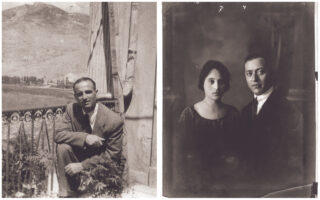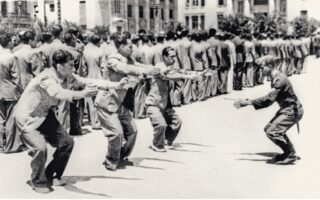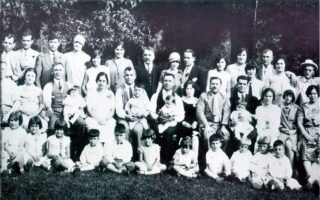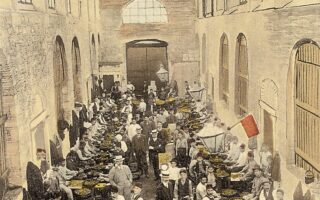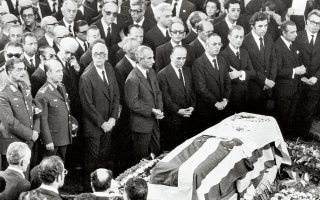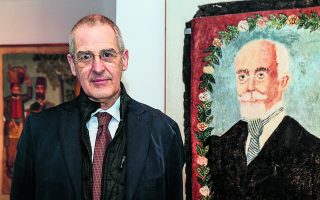‘Local as the corn that grows here’
Village of Avato in Xanthi is among a handful with a community of Black Greeks, whose ancestors came from Africa many decades ago
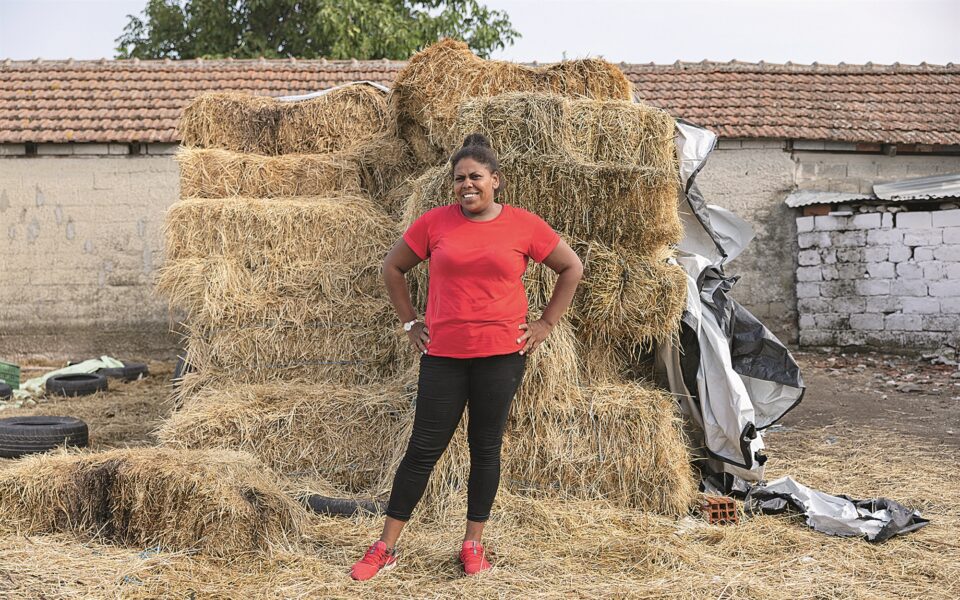
Gun Sabri, 50, is napping in a chair at a store owned by his brother, Ertal, in Avato. The village belongs to the municipality of Topeiros in the regional unit of Xanthi and is one of a handful of places in the country that is home to a community of Afro-Greeks, Black Greeks whose ancestors settled here centuries ago. Gun and Ertal believe that their ancestors originally hailed from Sudan, but their belief is based on information that has not been verified.
For years, the brothers did not even know where to start searching their roots. The only thing they did know was that their ancestors had traveled to Greece during Ottoman rule, as both their parents and grandparents were born in Avato. After finishing Greek school, Gun did his mandatory 15-month military service before moving to Germany for work. After that, he traveled as far as Nigeria in West Africa looking for his roots.
“I was trying to find someone who looks like me, at least,” he tells Kathimerini. He stayed in Nigeria for about two months, but felt no closer to an answer, so he decided to move back to the only place he know as home: Greece. When he landed at the airport back in 2003, he was stopped by a police officer and asked to show his papers. “He was very surprised to come across a Black Greek,” Gun says. The officer summoned a colleague, who also checked Gun’s passport. “Yes, they do exist in Thrace,” the second officer told the first, obviously referring to Black Greeks. “He’s Turkish,” he added.
It’s been nearly 20 years since then and the incident still rankles Gun. “He called me a Turk, which really annoyed me. I wanted to report him to his superior. I told him, ‘Never say that again.’” “It is not a matter of racism,” his brother, Ertal, says. “If I were to be born again, I would again want to be born Black,” he says. He smiles as he shows me his Greek ID. “This is something a foreigner cannot have,” he says.
It appears that, like other members of their community, the Sabri brothers are still being required to prove that they are Greek. This is in spite of the fact that they were born in Greece to Greek parents whose parents were also Greek – in fact, Greek Muslims.
No one seems to know the precise size of the community, but members who spoke to Kathimerini, as well as Topeiros Mayor Thomas Michoglou, believe that their population is roughly 200 people.
‘He called me a Turk, which really annoyed me. I wanted to report him’
Unknown history
“They hail from African populations that were brought here during the Ottoman Empire and they are an indication of the diversity of Xanthi’s Muslim minority, which is not just composed of the people born in Turkey and the Pomaks,” says Konstantinos Zafeiris, a lecturer of demography at the Democritus University of Thrace. Zafeiris agrees that no one really knows who their ancestors are, where they came from or when exactly.
“They were brought here as slaves at the time of the Ottoman Empire from Africa, via Egypt. They have been here for more than a hundred years,” Michoglou says.
“It’s not certain when they first moved here, but it is a long time ago,” Zafeiris agrees. “They are a small population and they’ve started to have mixed marriages with the rest of the population.”
The 14-year-old daughter of 38-year-old Gulseren Recep Oglu was born into an interracial marriage. Gulseren ran for city councilor on the Movement for Change ticket in the latest local elections in Evlalo, a village near Avato. Evlalo is home to many Afro-Greeks. Most of them are, in fact, related.
Gulseren lives with her daughter and her parents Raif and Katrie. Her uncle lives in a house in front of the pen where she keeps her sheep. The house behind the pen belongs to her 65-year-old aunt, Rasiye Reifoglu. I ask her if she was born here. She must have been asked that question many times because her answer comes almost automatically. “Of course, here, in Evlalo; my mother, father, grandfather and grandmother [were all born] here. I am not a foreigner, I am a local,” she says.
Gulseren says that her family did not have a problem with her marrying outside the community, even though everyone, including herself, wants to see the community preserve its character. However, the family of her ex-husband, who comes from the Turkish-speaking minority of Thrace, saw things differently. Asked whether they have ever been subjected to racism, Gulseren and most of the Afro-Greeks who spoke to Kathimerini said they have not. However, when she delves deeper into the details of her life, Gulseren says that whereas she has never experienced discrimination over the color of her skin – “here, we all grew up together, it’s like we all belong to the same race” – the same cannot be said about the town of Komotini, where she spent her married life.
“They looked at me in a different way over there,” she says. People seemed to have an issue with her; she doesn’t know whether it was because she was a Black woman speaking Turkish or a Black woman speaking Greek.
A 34-year-old painter who spoke on condition of anonymity shared a similar experience: “In Xanthi, I was once told, ‘Hey, black guy, why are you here?’” He adds that comments of this sort have become rare, particularly in Evlalo. “In Komotini some people refused to sit next to me because I was Black,” says another man, Sayid Velioglu. “But I like my color. I have no problem with it. Some Black people do not like being called Black, but I cannot see why. You are White, I am Black, what’s the difference? We are all human,” he says.
The immediate ancestors of 56-year-old Velioglu were born in Greece. He knows for sure that his grandparents were born here, although he is not so sure about the generations that came before them. He says he never asked his parents, who are now dead, about their ancestry, something which he now regrets. “Not that it would make much difference if I knew,” he says. “Greece is the only place I know. I was born here and this is my home.”
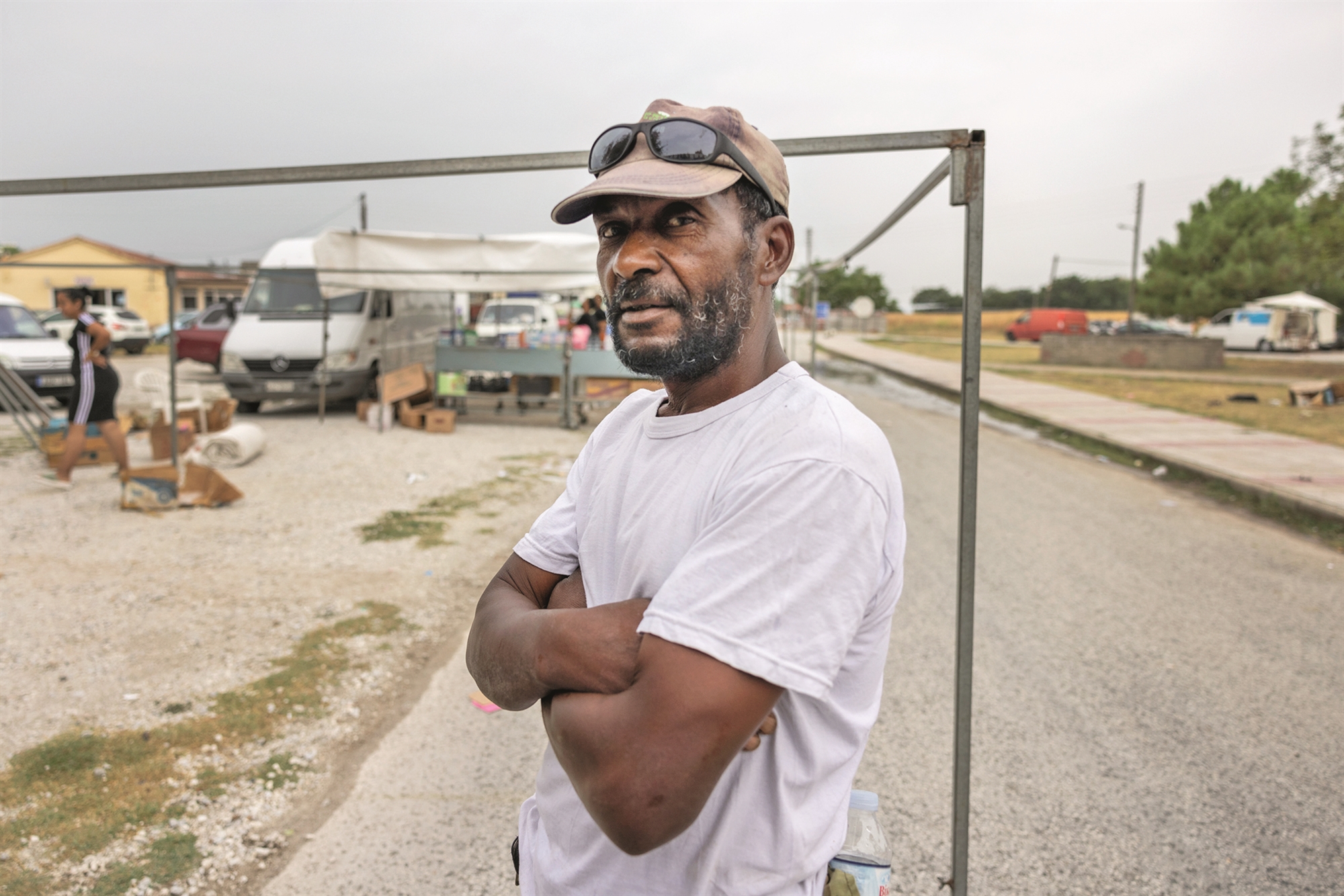
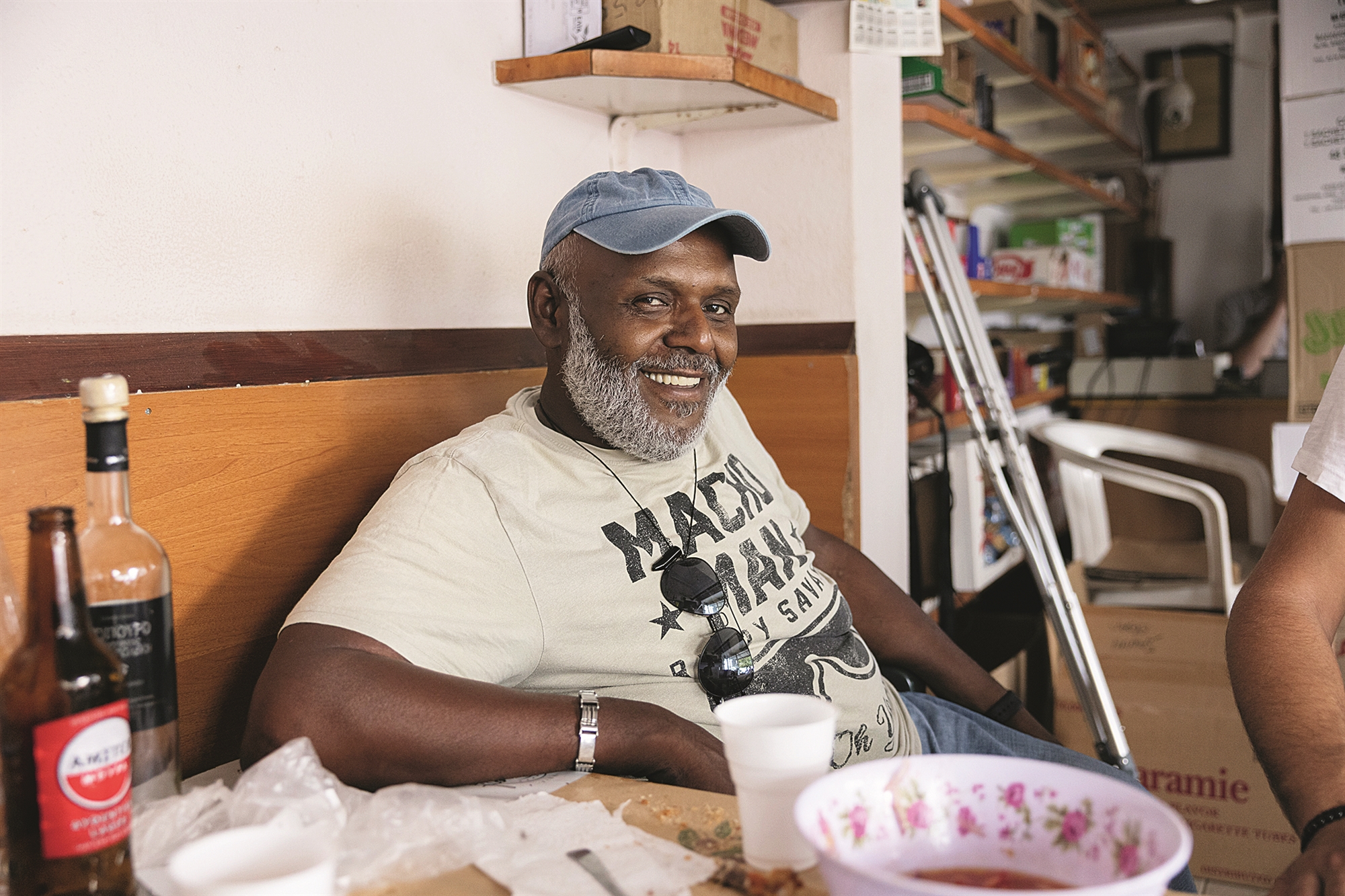
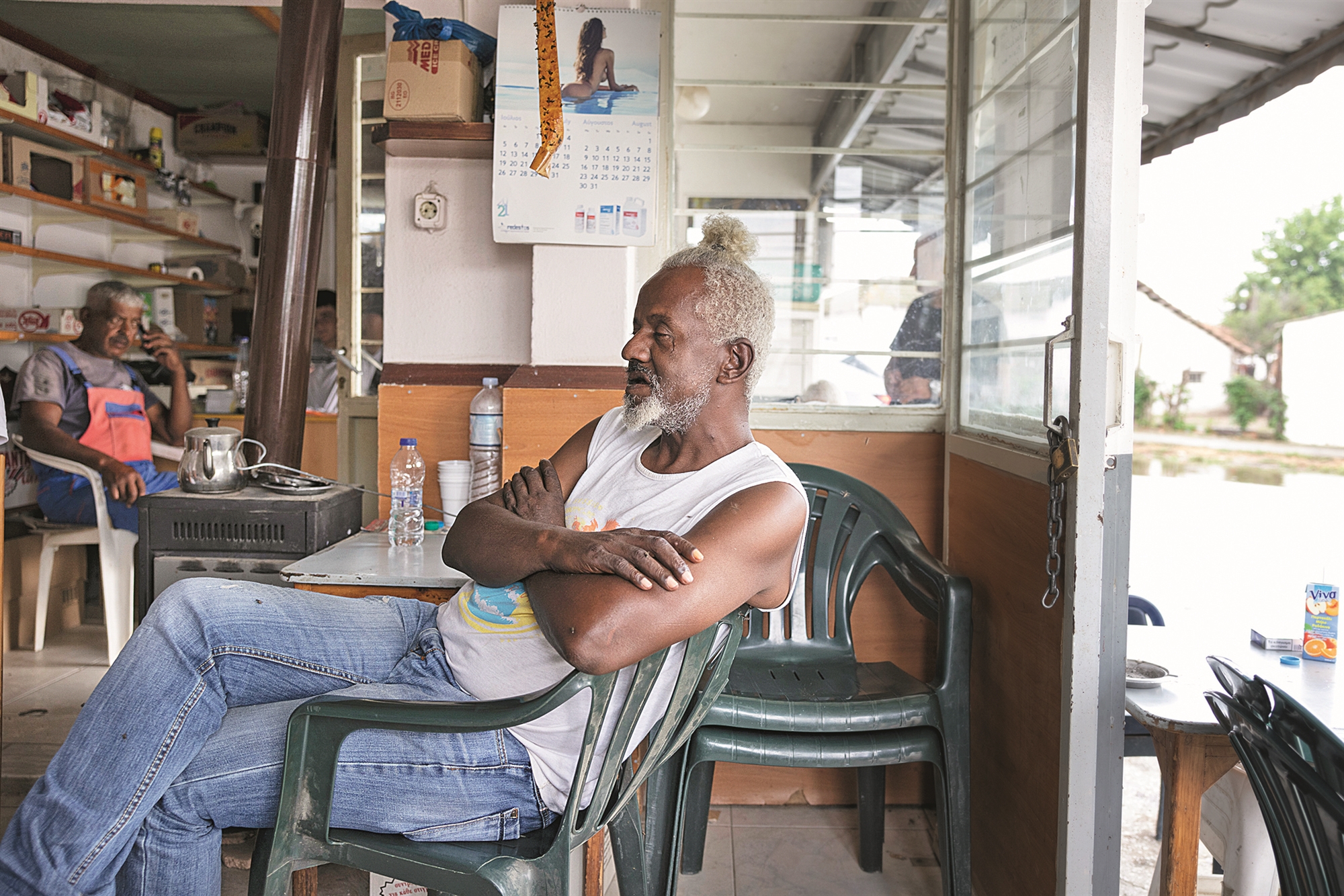
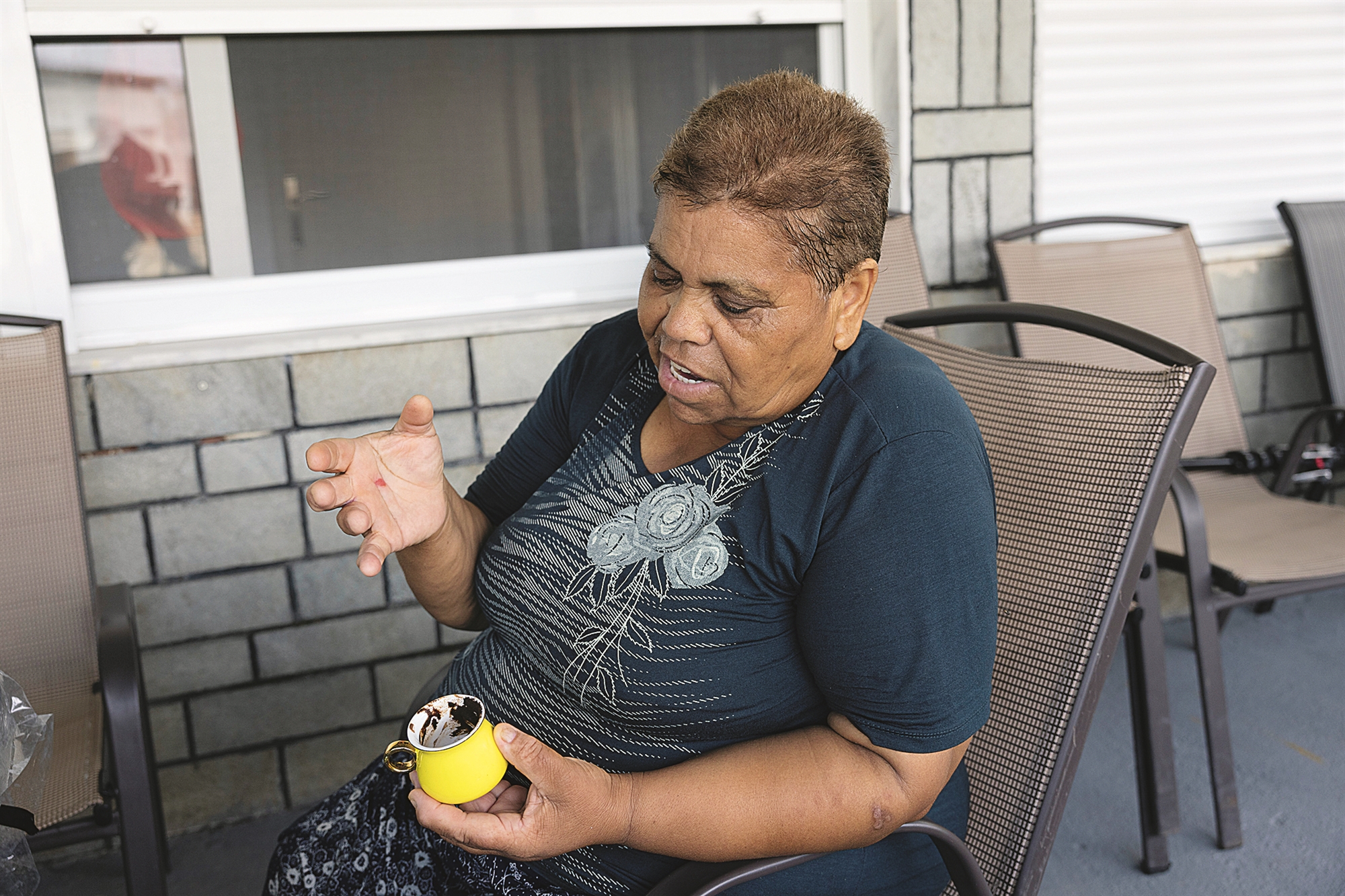
The matter of religion
The interview with the Sabri brothers at Avato is interrupted by the call of the muezzin from the village mosque. They say some people appear to be more annoyed by their religion than the color of their skin. “Some are more discriminatory about the fact that I am a Muslim,” the 34-year-old says, “but not in the village.” Forty-year-old Veli Reifoglu says that his parents only speak Turkish at home, as do most Afro-Greeks in Xanthi, although he says that he mostly speaks Greek in everyday life.
The two sisters of Gulseren, who are married to Afro-Greeks from Avato who are related, hardly speak any Greek, and her mother, Katrie, at home mostly listens to Turkish music, unlike her 14-year-old daughter, who speaks Greek fluently and is a fan of Trannos, a Greek trapper.
When disputes arise between Greece and Turkey, the community prefers to stay out of it. It is none of their business, they say. “That’s for the big cheeses,” says Ali Osman, a cousin of the Sabri brothers whose father is Afro-Greek and whose mother, as he describes her, is a “completely white Muslim from Xanthi.”
He did 22 months of military service at Amyntaio, in Florina. “Turk or Greek, it does not matter in this village; we all grew up together,” he says. “We all together celebrate Bayrams, and Christmas and Easter,” the 34-year-old painter says. He says he is glad to see the Antetokounmpo brothers play for Greece’s national basketball team. “I am happy because they are Greek and they look like me,” he says. “We have the same color.”
As we leave Evlalo, the fields are golden, full of corn. “We are poor, but we are healthy and we live here like brother and sister,” Reifoglu says. “We are locals. We are as local as the corn that grows here.”
